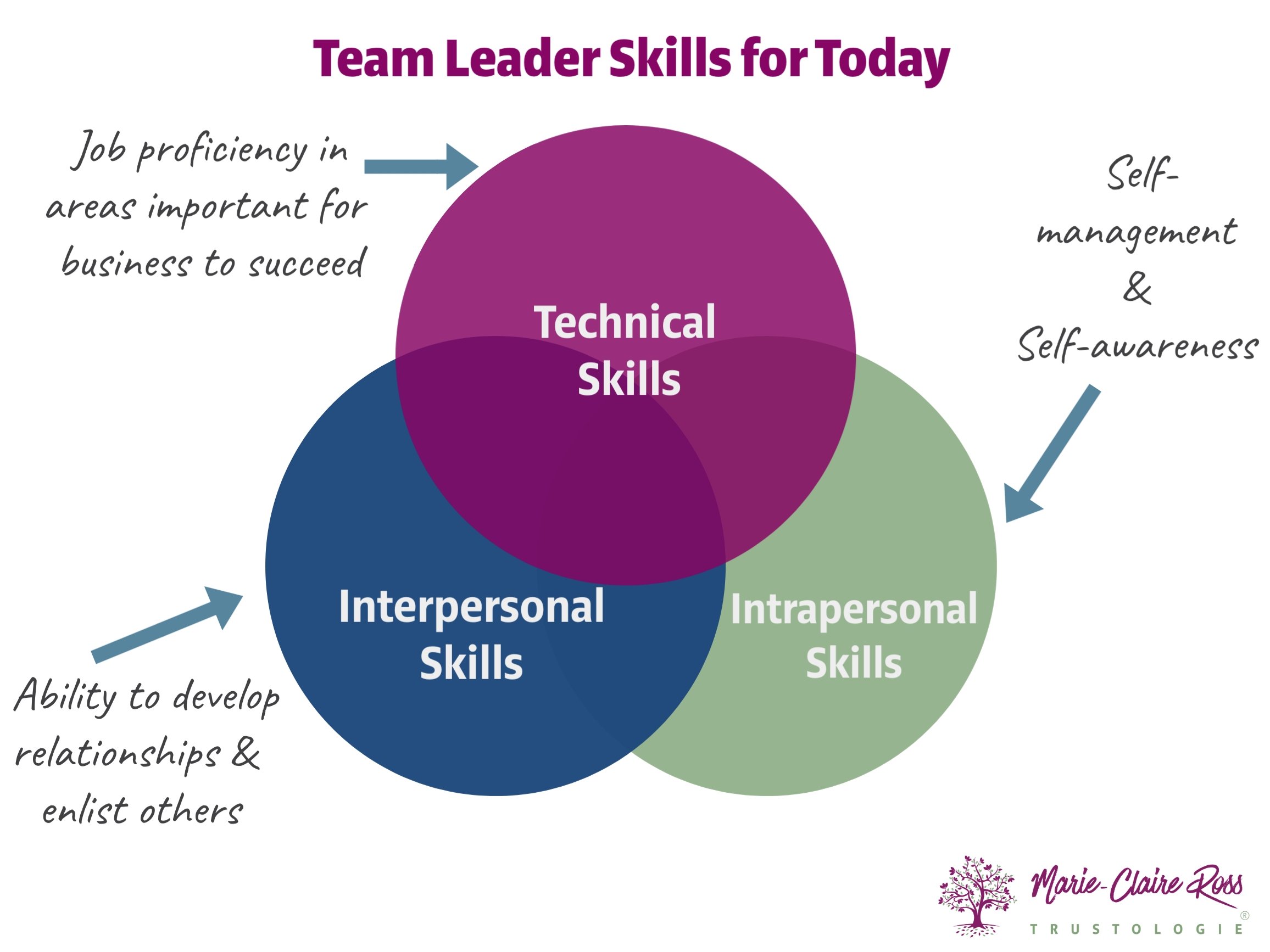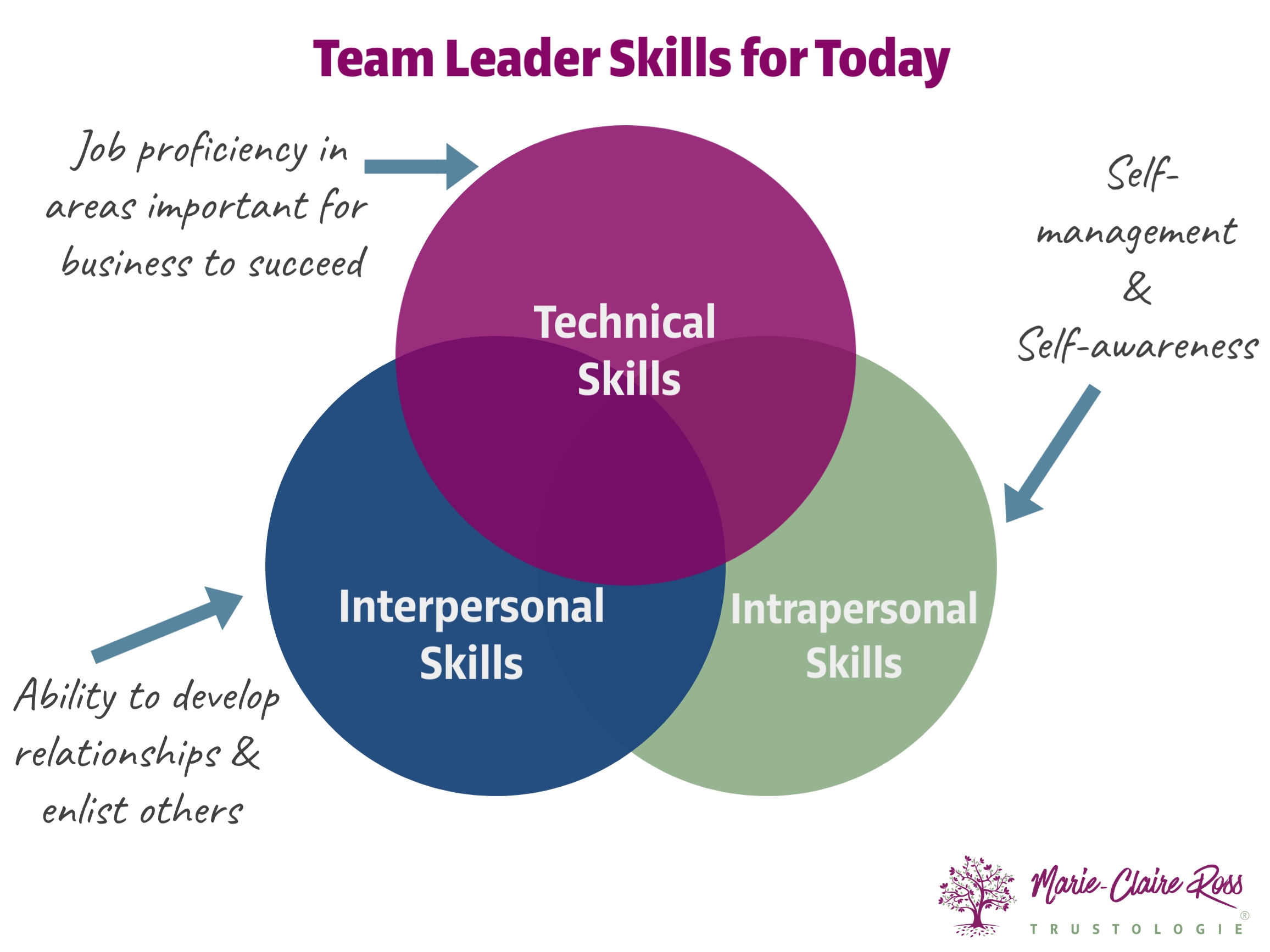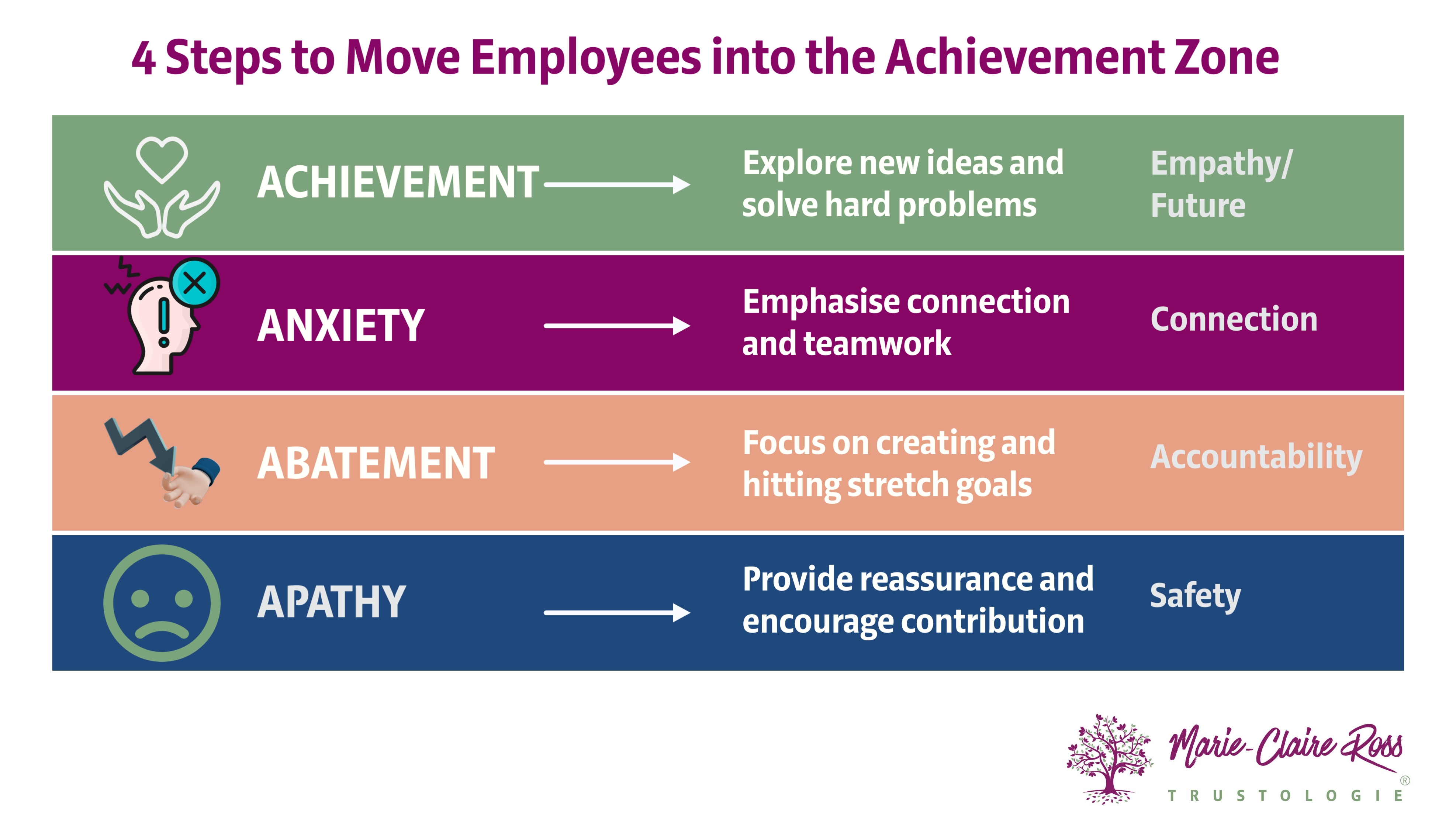9 min read
5 Ways Emotional Intelligence Transforms Your Leadership Presence Today
True leadership presence isn’t a performance or a set of charisma hacks; it is the felt experience of who you are being in the room. By cultivating...
Develop leaders, strengthen executive teams and gain deep insights with assessments designed to accelerate trust and performance.

Transform how your leaders think and perform with keynotes that spark connection, trust and high-performance cultures.

Explore practical tools, thought-leadership and resources to help you build trusted, high-performing teams.

Trustologie® is a leadership development consultancy founded by Marie-Claire Ross, specialising in helping executives and managers build high-trust, high-performing teams.

5 min read
Marie-Claire Ross : Updated on January 24, 2026

Teams are the engine rooms of an organisation. They are the spaces where cooperative components align to generate the power that moves a company forward. A truly great team isn't just a collection of people; it’s a diverse mix of talent working in unison to learn, innovate, and execute a shared strategy.
However, keeping these "engines" running smoothly requires a savvy leader. The transition from an individual contributor to a team leader is a significant shift in perspective. It requires moving away from personal output and focusing instead on the team’s collective performance. This isn't just a change in title - it’s a complete shift in mindset and behaviour.
For new leaders, this transition can be challenging. Most have spent their entire careers being rewarded for their personal technical skills and individual results. Learning to harness the power of a group requires a new balance: mastering intrapersonal skills (self-awareness and management) alongside interpersonal skills (building relationships and enlisting others).

Let's break down the most important team leader skills through focusing on both intrapersonal and interpersonal skills.
Working on our self-awareness improves our emotional intelligence - one of the most regularly cited skills employees want from their boss. Developing self-awareness plays an important role in being more empathetic. When we understand how other people see us, we are more likely to understand others and respect their viewpoint.
Self-awareness is really about bridging the gap between how we see ourselves and how others see us.
As Dr Tasha Eurich mentions in the book, Insight, self-awareness is made up of both internal self-awareness (knowing who you are and what makes you tick) and external awareness (understanding how other people see us).
A self-aware person knows who they are, what they want to accomplish and both values and requests the perspectives of others. They lean into their strengths and own their weaknesses.
While an un-self-aware person doesn’t know who they are, what they stand for or how their teams see them. The lead from their leadership reputation rather than their leadership brand.
Our inability to be self-aware inhibits our ability to trust those around us and the situations we face. Understanding how we operate in the world, helps us develop healthier relationships with others.
One of the biggest challenges for any human, let alone a leader, is staying calm during unfamiliar, high-pressure situations. During these times, it is so easy to be triggered into falling into old habits that stifles our ability to learn, change and adapt.
The result is we often jump to conclusions. We make poor decisions, react negatively and often create a level of anxiety that triggers the very reactions that tend to limit us, stifling innovation.
In the book, Deliberate Calm, by two McKinsey Consultants, they propose leaders learn a new way of reacting which involves emotional self-regulation, an important intrapersonal skill.
This involves learning to take a deep breath and take stock of the situation. Rather than panicking and feeling you have to have all the answers. It involves surfacing concerns and issues, no matter how uncomfortable, in order to explore the right approach. It requires remaining positive and hoping for the best, even in difficult times.
It means aiming for reflection instead of reaction.
Another important Intrapersonal skill is time management. People with strong self-regulation abilities often have an easier time weathering challenges and working toward goals in spite of distractions.
In this age of burnout and overwork, new leaders in particular tend to work themselves to the bone. This not only puts their mental health and free time at risk, but also puts unnecessary pressure on their own people.
Improving this situation requires spending quiet time planning. Getting really clear on your team's strategic priorities, future workload, resources available and your goals.
As an executive coach, I have noticed that many leaders often jump into delegating work. But this needs proper planning time allotted to it. At first, this can seem unnecessary but over time this planning can be reduced as you improve your leadership and communication.
Core to intrapersonal skills is a leader who trusts themselves - to lead, to learn, to know what to do and to make the best decision at that point in time.
It's not easy.
We all know about impostor syndrome. Scientists estimate that up to 82% of people face impostor syndrome, which is when you worry you have deceived others into believing you are more intelligent and capable than reality.
While we often hear about the downsides to imposter syndrome, there is actually a very good side. And that is it spurs us into improving our interpersonal skills - making us more likely to consider others, which in turn makes us more likeable.
In other words, trusting ourselves is more likely when we have the confidence and humility to take on feedback from others. This is important not only for our self-awareness, but also in our relationship building with others.
One of the most important skills of leading a team is delegation. Delegating effectively is really about communicating clearly. It's about being an accountability partner to your direct reports, so that they excel in their performance and know you are there to support them.
It requires clearly communicating how work is to be done through three important lenses - quality, time and budget. This involves co-creating with your direct reports on the best way to get tasks done.
Working with your people to improve autonomy and making them feel heard involves good listening skills and the ability to support them in their work.
Meetings are important to align the team, connect everyone together and get clear on what needs to be done. Of course, meetings have a bad rap for being a waste of time.
Team leaders need to be really intentional about how to lead an engaging team meeting that is worth everyone's time. Not only will it improve people's productivity, but also improve your team culture.
Meetings help you build stronger connections between teammates, while one-on-ones helps you form close bonds to your direct reports. They are critical to improving individual performance.
The more time you invest in building close relationships, the more invested your team will be in both you and the organisation. This works towards helping you gain and share information, make decisions, influence others and model core workplace behaviours.
Shifting from being recognised as a results-oriented achiever to a team leader requires understanding the contextual landscape of an organisation. Team leaders benefit from knowing how various functions interact and the strategic imperative behind each department aligned to the organisation's goal.
Moving outside the comfort zone of one's core technical expertise means being able to adapt and learn. This requires having a sense of curiousity, being open to new experiences and being willing to question one's beliefs and biases.
The truth is that things are always changing, including strategic plans. Leaders who are more likely to adapt to the changing conditions are those who have an open-mind and who are willing to observe the signs and change their approach. They don't get fixated on achieving one kind of outcome or perspective.
Learning effective team leader skills is a journey. It isn't something that can be learned in a two-day course. To ensure the success of team leaders, managers and organisations must provide coaching, developmental support, and stretch opportunities. Likewise, team leaders must be committed to learning, growing and trying out a new approach.
The investment is worth it. Research shows that companies whose managers cultivate strong relationships with their employees experience higher loyalty, trust, productivity, and joy.
Of course, not everyone leadership training program gets results. Choose a leadership development program with four key features that are evidence-based for the best results in improving leadership skills.
Once such leadership program to improve effective leadership skills is my Tribe of Trusted Leaders - Leadership Development Course. It's a 12 month immersive journey full of coaching, training and real-world practical application.

9 min read
True leadership presence isn’t a performance or a set of charisma hacks; it is the felt experience of who you are being in the room. By cultivating...

13 min read
As teams return from their summer (or winter) break, you may notice subtle shifts in your team’s energy. Even if the end of year was positive, a new...

14 min read
The workplace is evolving at a pace few previous generations have seen and 2026 will mark a turning point. The Future of Work is blended, not hybrid....

A study byCornell University and Green Peak Partnerswanted to uncover why 72 high performing CEOs running companies from $5 million to $50 billion...

You can tell whether a man is clever by his answers.You can tell whether a man is wise by his questions.

1. Use more Visuals - 83% of human learning occurs visually. Use lots of photos, videos, diagrams and colour to present training information. Avoid...